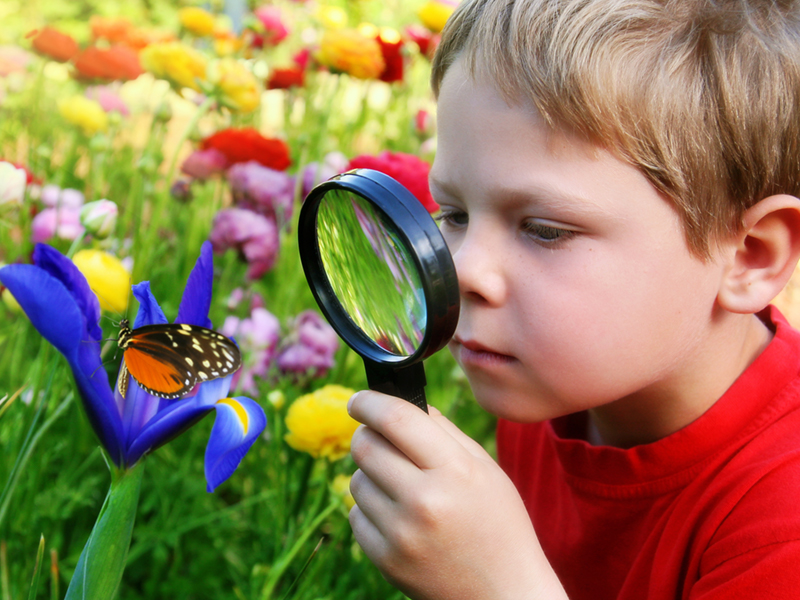Throughout February, low temperatures inspire warm winter coats and hot cocoa to keep us cozy. During the dead of winter with frostbite nipping at our noses, we can start to thaw things out with hope and excitement for a new season of summer camps. After riding out this difficult pandemic for nearly a year, the silver lining has been unexpected extra time to spend with family, which makes it easier to build excitement for summer camps by planning together and actively involving your child in the decision-making process and selection.
Maria Burke, founder of Emergent Design Studio, believes parents should ask themselves: “What makes my kid wonder? … Choose a camp that allows your child to deep-dive into their personal curiosities, tap into their creativity through making and risk-taking and reconnect with peers through problem-solving relevant local issues.”
The following are 5 questions to spark thoughtful summer camp conversations with your child and better understand his or her needs and desires in a summer camp experience.
1. “Do you think you will enjoy virtual summer camps?”
After attending virtual schooling for nearly a year, some children may not be willing to extend their virtual learning to the summer. While it may be tempting to automatically sign up your child for virtual summer camps, it’s a good idea to get their feedback to see how much they like the virtual lessons.
Learning at home has certainly brought comfort to a new level, with easy access to hot foods, private bathrooms and frequent screen breaks to play with siblings or run around outside, but comfort is only part of the equation. Getting used to learning at home is one thing, being happy and satisfied is another. Ask children if they feel they will truly appreciate summer camps that are virtual.
The Summer Enrichment Academy at UMBC recognizes the need for children to not just learn, but enjoy themselves by offering “rigorous, engaging, one-week summer workshops and camp programs … designed to spark our students’ deepest passions and interests.”
2. “Is it a priority for you to attend camp in person at a physical location?”
Piggybacking on the first question, parents should gauge their children’s wishes for summer camps at physical sites. In the last year, parents have almost unilaterally decided schooling arrangements for their children, but summer camps are not intended to be as rigorous as the traditional school year in which in-person learning is critical.
Pay close attention to your children’s needs. Ask them outright if they want to be on-site to attend summer camp at specific locations. “Summer camps are … critical … to restore kids’ confidence, emotional and physical health … They need to be safely immersed back into their peer group and revel in the activities that make them sparkle,” notes Jeanne E. Harrison, Producing Artistic Director of the Traveling Players Ensemble.
3. “Would you like to have new adventures in summer camps by sleeping over?”
After nearly one year of the most unusual time in recent history in which people were asked to stay put, avoid public gatherings and hold off on seeing family at holidays, it is certain that families are chomping at the bit to go out and do things.
If children were accustomed to doing sleepovers at friends’ houses and possibly attending sleep away summer camps, it is likely they’ll be ready to return! Perhaps you can purchase new summer pajamas as an ice breaker to talk about the possibility of joining sleepaway summer camps.
Some places, such as Oakland School in Troy, Virginia, are “ … excited to reopen sleepover camp in 2021, a tradition since 1950,” says Carol Williams, Head of School.
4. “How do you feel about immersing yourself in performing arts?”
Performing arts are unique vehicles that teach children new skills in dance, music or theater by giving them a chance to perform what they’ve learned. By its very nature, performing arts involves an audience watching attentively as the child performs.
Many children are naturally outgoing and have no problems getting up on stage to sing, dance, act or play musical instruments. Other children have to be coaxed into it. Successful participation in performing arts summer camps will depend a lot on the personality of the child. Your child may not necessarily understand what is involved with performing. Watching videos of child performers may be helpful. Talking with the summer camp admissions staff is also a great way to get questions answered and address any fears or anxiety about performing.
“It is time to get back to fun and exciting musical theater and creative arts camp … [to] express yourself through music, art and theater in a safe environment,” states Harmonia School director Chonghae Durak.
5. “Do you prefer individual activities or group activities?”
Some summer camps offer children the opportunity to participate through individual settings or stations that guide children with independent learning. Some examples include: measuring ingredients while cooking and baking, figuring out how to code a program, assembling parts to build a robot or concocting safe and simple science experiments.
Other summer camps are administered in groups, such as those involving athletics and team sports, video creation and editing and outdoors nature camps, such as boating, hiking or counselor-in-training programs, that involve supervision of younger campers.
Barrie Camp in Silver Spring, Maryland offers “a safe, self-contained environment … for campers to freely explore … through hands-on experiences, collaboration and diversity of thought and culture [where] campers are encouraged to … try new things, explore, accept challenges and find joy in all that they do.”
No matter which summer camp you choose for your child, working together to plan will build a momentum of eager anticipation.

